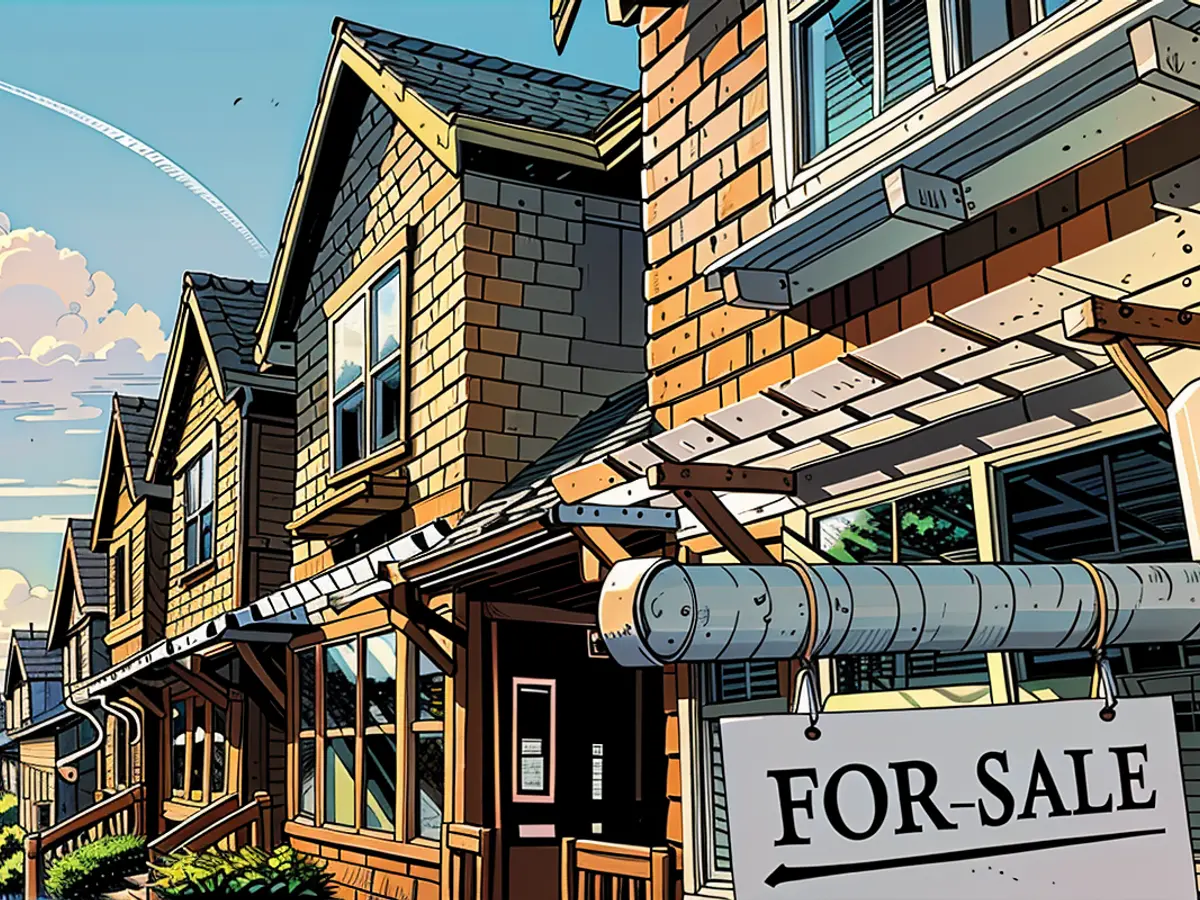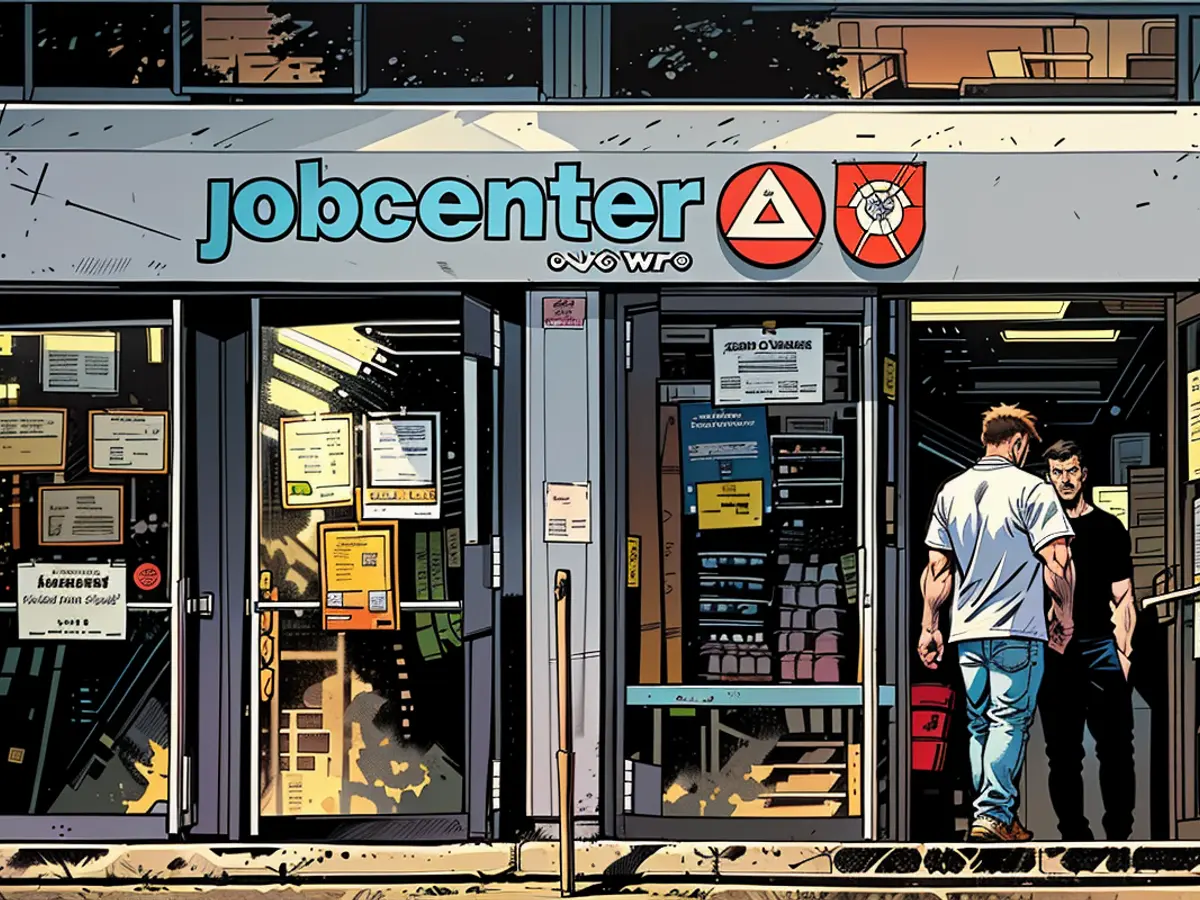Hier sind wichtige Informationen, die Sie beachten sollten, bevor Sie eine neue Immobilie kaufen.
Für Personen, die mit dem Gedanken spielen, ein Haus zu kaufen und bisher gezögert haben, könnte der kürzliche Rückgang der Hypothekenzinsen eine komplexe Herausforderung darstellen.
Geringere Zinsen könnten Hauskäufern vermehrte Kaufkraft verleihen. Allerdings könnten sie auch die Konkurrenz unter den Haussuchenden erhöhen und die bereits astronomisch hohen Hauspreise weiter in die Höhe treiben.
Wie Greg McBride, Chefanalyst von Bankrate, es ausdrückte: "Es ist so eine Sache, bei der man vorsichtig sein sollte, was man sich wünscht." Ein weiterer Rückgang der Hypothekenzinsen könnte eine Nachfragedynamik auslösen und es schwieriger machen, tatsächlich ein Haus zu erwerben.
Steigende Rivalität auf dem Immobilienmarkt
Ein Haus ist in der Regel die größte einzelne Anschaffung einer Person, und in letzter Zeit ist der Kostenfaktor dieser Investition gestiegen.
Die seit Jahren bestehenden Finanzierungsprobleme auf dem US-Immobilienmarkt haben sich nach der aggressiven Zinserhöhung durch die Federal Reserve im Kampf gegen die Inflation vor zwei Jahren verschärft, wobei die Hauspreise Rekordhöhen erreichten.
Allerdings ist der durchschnittliche 30-jährige fixe Hypothekenzins laut Freddie Mac letzte Woche auf 6,46% gesunken, sein tiefster Stand seit über einem Jahr und deutlich niedriger als sein Höchststand von 7,79% im vergangenen Jahr. Es gibt eine wachsende Übereinstimmung, dass die Fed nächsten Monat die Zinsen senken wird, obwohl sie die Hypothekenzinsen nicht direkt festlegt, beeinflussen ihre Maßnahmen die Kreditkosten in der Wirtschaft.
Mehr Hauskäufer haben reagiert: Die Existing-Home-Sales stiegen im Juli um 1.3%, was das Ende von vier aufeinanderfolgenden Monaten mit sinkenden Verkaufszahlen markierte, wie die National Association of Realtors berichtete.
Experten glauben, dass die Nachfrage nach Häusern weiter steigen wird.
"We've observed substantial upticks in demand whenever interest rates decrease," said Vishal Garg, CEO of Better.com, an online mortgage lending company, speaking to CNN. Along with the increased demand comes fierce competition, particularly as the USA grapples with a housing inventory scarcity compared to demand.
There's another element that could boost demand starting this month: Recent modifications implemented by the National Association of Realtors.
The changes, which took effect on August 17, are intended to transform the way the 1.5 million NAR real estate experts are compensated when they assist in buying and selling homes.
"There's an expectation that perhaps there could be lower transaction fees at some point in the future," said Charles Dougherty, a senior economist at Wells Fargo. "That might have encouraged some buyers and sellers to postpone their actions until these changes were implemented."
However, Dougherty pointed out that it's too early to determine exactly how the new NAR rules will impact the housing market.
Scarcity of supply has been another significant issue contributing to housing market challenges: Fewer homeowners with ultra-low mortgage rates locked in during the pandemic were willing to put their homes up for sale in a higher interest rate environment. Lower rates might finally erode the mortgage "lock-in" effect.
A July Bankrate survey of 1,133 current homeowners revealed that 35% would be comfortable selling their homes this year if mortgage rates fell below 6%. Furthermore, over half of these homeowners said they would be comfortable buying a home this year if rates fell under 6%.
"It's tough to pinpoint the turning point," said McBride. "I do anticipate that we will see more homes hitting the market as mortgage rates decrease."
Should homebuyers wait for rate cuts?
Timing the housing market perfectly is challenging — and potential buyers waiting for the Fed to lower rates even more before diving into the market could be disappointed.
Wells Fargo estimates the 30-year fixed mortgage rate will average 6.5% by the end of 2024 and 5.9% by the end of 2025.
"We're looking for the 30-year mortgage rate to fall slightly over the coming 18 months or so, but not by a significant amount," Dougherty said. "That will denote a modest improvement in affordability, but mortgage rates are not likely to fall to the 3% rates that were averaged just last year."
McBride advised first-time homebuyers to ensure they are financially prepared before venturing into homeownership rather than basing their decision on small shifts in the average mortgage rate.
"Homeownership is like a marriage," he said. "You've got to be in it for the long run, and you've got to be prepared for all the commitment it entails." "Regardless of where mortgage rates are, if you're biting off more than you can chew financially, that can have pretty devastating consequences if things go wrong."
The lower mortgage rates could help boost a business sector, such as real estate services, as increased demand for houses could lead to more home sales and commissions. However, the escalating house prices due to increased competition might pose challenges for first-time homebuyers trying to afford their dream homes.
Despite the recent slide in mortgage rates, the affordability issues in the US housing market have persisted, making it difficult for many individuals to enter the property market. Businesses in the construction and real estate sectors may still face challenges, as the supply of houses does not meet the demand, leading to competition among buyers.







